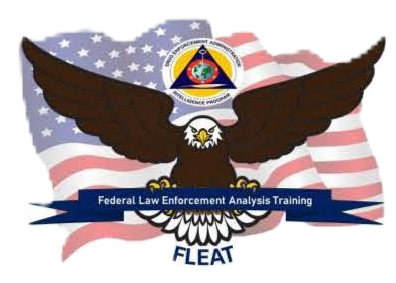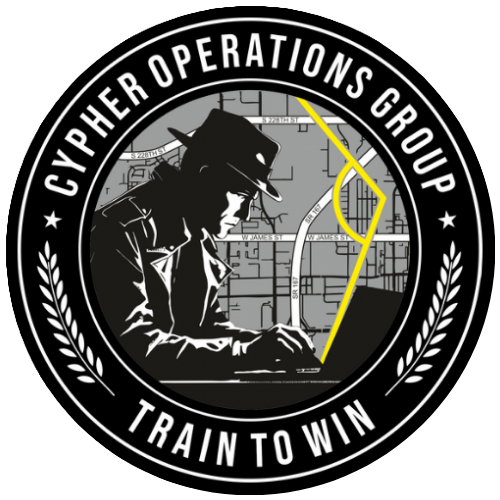Upcoming Training
August
MISSION PLANNING
AUGUST 20-21, 2025
This course is presented over the course of two days: Day 1 introduces a standard for planning based on the spectrum of “Tactical Excellence” (accomplishing the mission with minimal costs) and “Tactical Failure” (missions where the costs exceeded the benefits of accomplishing the mission). Day 1 also introduces the “Time-constrained Planning Process”, which can be used when investigators/officers have between 2 and 48 hours to plan a mission; and “Concept of the Operation”, a tool for managing information. Students will break into teams and plan a time-constrained mission over lunch. After lunch, students will be provided instruction on conducting a “Mission Brief”, followed by the students actually briefing their mission to the class. Day 1 will finish with instruction on conducting an “After-Action Review”. Day 2 introduces students to the “Deliberate Mission Planning Process”, a tool for managing time when officers have more than 48 hours to plan a more complex and challenging mission; and a second information management tool, known as the “Operations Order”. Students will break into teams and plan a a mission over the lunch hour, utilizing each step of the “Deliberate Planning Process”, then fill out the Operations Order and brief their mission to the class. Prerequisites: Computer with Microsoft Office, Internet access Please bring lunch, as there will be working lunches on both days Course Length: 2 Days / 16 Hours / 8am to 5pm
September
FEDERAL LAW ENFORCEMENT ANALYSIS TRAINING – OPEN TO ALL LAW ENFORCEMENT
SEPTEMBER 16-18, 2025
The course if presented by the DEA Office of Training and is designed as an introduction to intelligence analysis. Topics covered will include Charting & Graphic Analysis; Basic Financial Analysis, including Crypto-currency; Targeting Criminal Organizations; Investigative Writing; Document and Media Exploitation; and, DARTS/DICE Deconfliction. This is a 24-hour course designed for investigators, law enforcement officers, intelligence analysts and prosecutors from all federal, state, local and tribal agencies.


CASE DEVELOPMENT THROUGH PHYSICAL/MOBILE SURVEILLANCE AND CELL RECORD ANALYSIS (40-HOURS)
SEPTEMBER 22-25, 2025
In today’s rapidly evolving landscape of technology, including cell phones, social media, and more, effective case development in criminal investigations requires a multifaceted approach. This training course offers a unique blend of physical surveillance techniques and historical cell record analysis, equipping participants with the skills to gather, analyze, and interpret data from both the physical environment and cell record footprints. Students will learn that when these two are combined, they become a powerful tool not only for apprehension but also for: 1. Case development and mission planning 2. Identifying and locating co-conspirators 3. Tracing the movement of physical evidence after the crime to help support the case for court (such as clothing, vehicles, firearms, etc.) 4. Guiding teams on where to canvass for video footage 5. Identifying and locating potential stash houses and hideouts for narcotics investigations 6. Keeping officers safe by minimizing unexpected risks. Modules: Interactive lectures, group discussions, and eight (8) real scenario-based simulations. Course of Instruction will be four 10-hour days (0800-1800 hours)<br/> Required Items:
- Unmarked Vehicle
- A cellphone that can run the Zello communications app (available on App Store of Google Play Store)
- Headphones or Earbuds
- Secondary GPS Device (Can be a second phone, or GPS Unit)
- Laptop
- Download CASTviz cell data plotting software (available for free at Castviz.com) ahead of time
MAXIMIZING THE JUDICIAL IMPACT OF NON-DRUG EVIDENCE – PROVING KNOWLEDGE AND INTENT
SEPTEMBER 25, 2025
Narcotic investigators and prosecutors face four defenses which are raised time and time again by the defense bar at trial: 1.) I did not have anything to do with it; 2) I didn’t know about it; 3) That’s not mine; and 4) It’s mine but I don’t distribute it. Armed with the knowledge of these recurring defenses, investigators can focus on the non-drug evidence which establishes knowing and intentional criminal drug conduct. This course is designed to help you identify this critical evidence and provide you with the most recent case law to make sure the court will allow your prosecutor to use this evidence at trial.
October
TECHNOLOGY THREATS & TRENDS AGAINST LAW ENFORCEMENT
OCTOBER 1, 2025
Technology saturates our everyday lives. Yet, so many technologies are being developed with the specific purpose of targeting police officers or hiding criminal activity. This is a unique and eye-opening class for prosecutors, law enforcement personnel, and anyone working in the judicial system who wants to learn more about how technologies are being used (or misused) to commit crimes, avoid or detect investigations, and to conduct counter-surveillance. However, not only will this class examine and demonstrate how individuals are misusing these technologies, but it will also reveal simple, inexpensive ways to mitigate their success as well as provide some investigative tips. Although dealing with technology issues, this course is instructed in a manner that both the novice and the expert will understand and appreciate. The course utilizes a combination of lecture, multimedia examples, case studies, and live demonstrations involving the attendees. TOPICS COVERED:
- Video Counter-Surveillance
- The Vulnerabilities of Caller ID Including Spoofing & Unblocking Software
- Virtual Numbers
- What the Metadata in Photographs Reveals
- Devious & Dangerous Smartphone Apps
- GPS & Geo-Location Threats
- Understanding IP Addresses & How to Identify a Target
- Proxy Servers &VPNs
- Pertinent Intelligence to Gain from Vehicle Data
- Officers Personal Information on the Internet & How to Remove
- Case Studies & Examples of Some Technologies Used Against Officers





